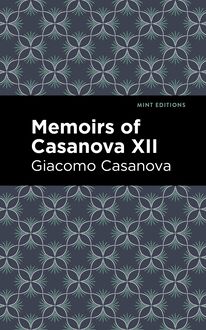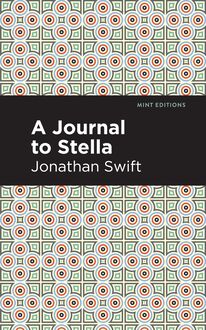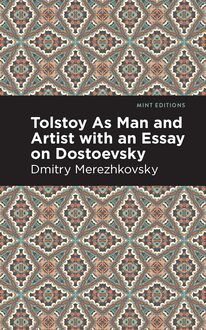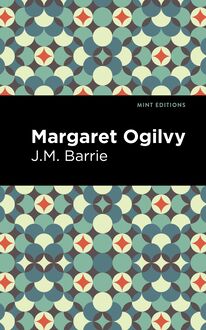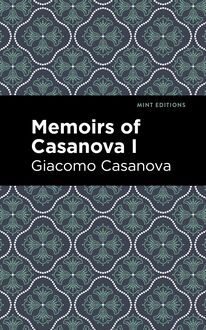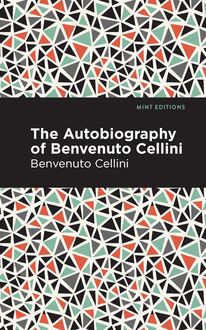-
 Univers
Univers
-
 Ebooks
Ebooks
-
 Livres audio
Livres audio
-
 Presse
Presse
-
 Podcasts
Podcasts
-
 BD
BD
-
 Documents
Documents
-
- Cours
- Révisions
- Ressources pédagogiques
- Sciences de l’éducation
- Manuels scolaires
- Langues
- Travaux de classe
- Annales de BEP
- Etudes supérieures
- Maternelle et primaire
- Fiches de lecture
- Orientation scolaire
- Méthodologie
- Corrigés de devoir
- Annales d’examens et concours
- Annales du bac
- Annales du brevet
- Rapports de stage
La lecture à portée de main
Vous pourrez modifier la taille du texte de cet ouvrage
Découvre YouScribe en t'inscrivant gratuitement
Je m'inscrisDécouvre YouScribe en t'inscrivant gratuitement
Je m'inscrisEn savoir plus
Vous pourrez modifier la taille du texte de cet ouvrage
En savoir plus

Description
Memoirs of Casanova (1792) is the autobiography of Italian adventure and socialite Giacomo Casanova. Written at the end of his life, the Memoirs capture the experiences of one of Europe’s most notorious figures, a man whose escapades as a gambler, womanizer, and socialite are matched only by his unique gift for sharing them with the world. More than perhaps any other man, Casanova sought to emulate the lessons of the Enlightenment on the level of everyday life, a sentiment captured perfectly in the opening sentence of his Memoirs: “I will begin with this confession: whatever I have done in the course of my life, whether it be good or evil, has been done freely; I am a free agent.”Memoirs of Casanova Volume VII follows Giacomo Casanova from Paris—where he spent two years learning the French language and enraging local authorities—to Vienna, a city unsuited to his libertine lifestyle. After a year, he grows tired of Austrian stuffiness and returns to Venice, his birth city. There, he gains and loses fortunes overnight, living the torturous lows and intoxicating highs of life as a professional gambler. Somehow, in a city where supposedly everyone knows his name, Casanova accumulates even more enemies, drawing the attention of state spies and risking not just disgrace, but a lengthy imprisonment. With a beautifully designed cover and professionally typeset manuscript, this edition of Giacomo Casanova’s Memoirs of Casanova is a classic of European literature reimagined for modern readers.
Sujets
Informations
| Publié par | Mint Editions |
| Date de parution | 29 juin 2021 |
| Nombre de lectures | 0 |
| EAN13 | 9781513286914 |
| Langue | English |
| Poids de l'ouvrage | 2 Mo |
Informations légales : prix de location à la page 0,0350€. Cette information est donnée uniquement à titre indicatif conformément à la législation en vigueur.
Extrait
Memoirs of Casanova Volume VII
Giacomo Casanova
Memoirs of Casanova Volume VII was first published in 1902.
This edition published by Mint Editions 2021.
ISBN 9781513281896 | E-ISBN 9781513286914
Published by Mint Editions®
minteditionbooks.com
Publishing Director: Jennifer Newens
Design & Production: Rachel Lopez Metzger
Project Manager: Micaela Clark
Translated By: Arthur Machen
Typesetting: Westchester Publishing Services
C ONTENTS
I. My Stay in Vienna—Joseph II—My Departure for Venice
II. I Return the Portrait I Had Stolen in Vienna I Proceed to Padua; An Adventure on My Way Back, and Its Consequences—I Meet Therese Imer Again—My Acquaintance With Mademoiselle C. C.
III. Progress of My Intrigue with the Beautiful C. C.
IV. Continuation of My Intrigues with C. C.— M. de Bragadin Asks the Hand of That Young Person for Me—Her Father Refuses, and Sends Her to a Convent—De la Haye—I Lose All my Money at the Faso-table—My Partnership with Croce Replenishes My Purse—Various Incidents
V. I Get Rich Again—My Adventure At Dolo—Analysis of a Long Letter From C. C.—Mischievous Trick Played Upon Me By P. C.—At Vincenza—A Tragi-comedy At the Inn
VI. Croce Is Expelled From Venice—Sgombro—His Infamy and Death—Misfortune Which Befalls My Dear C. C.—I Receive An Anonymous Letter From a Nun, and Answer It—An Amorous Intrigue
I
M Y S TAY IN V IENNA— J OSEPH II — M Y D EPARTURE FOR V ENICE
A rrived, for the first time, in the capital of Austria, at the age of eight-and-twenty, well provided with clothes, but rather short of money—a circumstance which made it necessary for me to curtail my expenses until the arrival of the proceeds of a letter of exchange which I had drawn upon M. de Bragadin. The only letter of recommendation I had was from the poet Migliavacca, of Dresden, addressed to the illustrious Abbe Metastasio, whom I wished ardently to know. I delivered the letter the day after my arrival, and in one hour of conversation I found him more learned than I should have supposed from his works. Besides, Metastasio was so modest that at first I did not think that modesty natural, but it was not long before I discovered that it was genuine, for when he recited something of his own composition, he was the first to call the attention of his hearers to the important parts or to the fine passages with as much simplicity as he would remark the weak ones. I spoke to him of his tutor Gravina, and as we were on that subject he recited to me five or six stanzas which he had written on his death, and which had not been printed. Moved by the remembrance of his friend, and by the sad beauty of his own poetry, his eyes were filled with tears, and when he had done reciting the stanzas he said, in a tone of touching simplicity,’Ditemi il vero, si puo air meglio’?
I answered that he alone had the right to believe it impossible. I then asked him whether he had to work a great deal to compose his beautiful poetry; he shewed me four or five pages which he had covered with erasures and words crossed and scratched out only because he had wished to bring fourteen lines to perfection, and he assured me that he had never been able to compose more than that number in one day. He confirmed my knowledge of a truth which I had found out before, namely, that the very lines which most readers believe to have flowed easily from the poet’s pen are generally those which he has had the greatest difficulty in composing.
“Which of your operas,” I enquired, “do you like best?”
“ ‘Attilio Regolo; ma questo non vuol gia dire che sia il megliore’.”
“All your works have been translated in Paris into French prose, but the publisher was ruined, for it is not possible to read them, and it proves the elevation and the power of your poetry.”
“Several years ago, another foolish publisher ruined himself by a translation into French prose of the splendid poetry of Ariosto. I laugh at those who maintain that poetry can be translated into prose.”
“I am of your opinion.”
“And you are right.”
He told me that he had never written an arietta without composing the music of it himself, but that as a general rule he never shewed his music to anyone.
“The French,” he added, “entertain the very strange belief that it is possible to adapt poetry to music already composed.”
And he made on that subject this very philosophical remark:
“You might just as well say to a sculptor, ‘Here is a piece of marble, make a Venus, and let her expression be shewn before the features are chiselled.’ ”
I went to the Imperial Library, and was much surprised to meet De la Haye in the company of two Poles, and a young Venetian whom his father had entrusted to him to complete his education. I believed him to be in Poland, and as the meeting recalled interesting recollections I was pleased to see him. I embraced him repeatedly with real pleasure.
He told me that he was in Vienna on business, and that he would go to Venice during the summer. We paid one another several visits, and hearing that I was rather short of money he lent me fifty ducats, which I returned a short time after. He told me that Bavois was already lieutenant-colonel in the Venetian army, and the news afforded me great pleasure. He had been fortunate enough to be appointed adjutant-general by M. Morosini, who, after his return from his embassy in France, had made him Commissary of the Borders. I was delighted to hear of the happiness and success of two men who certainly could not help acknowledging me as the original cause of their good fortune. In Vienna I acquired the certainty of De la Haye being a Jesuit, but he would not let anyone allude to the subject.
Not knowing where to go, and longing for some recreation, I went to the rehearsal of the opera which was to be performed after Easter, and met Bodin, the first dancer, who had married the handsome Jeoffroi, whom I had seen in Turin. I likewise met in the same place Campioni, the husband of the beautiful Ancilla. He told me that he had been compelled to apply for a divorce because she dishonoured him too publicly. Campioni was at the same time a great dancer and a great gambler. I took up my lodgings with him.
In Vienna everything is beautiful; money was then very plentiful, and luxury very great; but the severity of the empress made the worship of Venus difficult, particularly for strangers. A legion of vile spies, who were decorated with the fine title of Commissaries of Chastity, were the merciless tormentors of all the girls. The empress did not practise the sublime virtue of tolerance for what is called illegitimate love, and in her excessive devotion she thought that her persecutions of the most natural inclinations in man and woman were very agreeable to God. Holding in her imperial hands the register of cardinal sins, she fancied that she could be indulgent for six of them, and keep all her severity for the seventh, lewdness, which in her estimation could not be forgiven.
“One can ignore pride,” she would say, “for dignity wears the same garb. Avarice is fearful, it is true; but one might be mistaken about it, because it is often very like economy. As for anger, it is a murderous disease in its excess, but murder is punishable with death. Gluttony is sometimes nothing but epicurism, and religion does not forbid that sin; for in good company it is held a valuable quality; besides, it blends itself with appetite, and so much the worse for those who die of indigestion. Envy is a low passion which no one ever avows; to punish it in any other way than by its own corroding venom, I would have to torture everybody at Court; and weariness is the punishment of sloth. But lust is a different thing altogether; my chaste soul could not forgive such a sin, and I declare open war against it. My subjects are at liberty to think women handsome as much as they please; women may do all in their power to appear beautiful; people may entertain each other as they like, because I cannot forbid conversation; but they shall not gratify desires on which the preservation of the human race depends, unless it is in the holy state of legal marriage. Therefore, all the miserable creatures who live by the barter of their caresses and of the charms given to them by nature shall be sent to Temeswar. I am aware that in Rome people are very indulgent on that point, and that, in order to prevent another greater crime (which is not prevented), every cardinal has one or more mistresses, but in Rome the climate requires certain concessions which are not necessary here, where the bottle and the pipe replace all pleasures. (She might have added, and the table, for the Austrians are known to be terrible eaters.)
“I will have no indulgence either for domestic disorders, for the moment I hear that a wife is unfaithful to her husband, I will have her locked up, in spite of all, in spite of the generally received opinion that the husband is the real judge and master of his wife; that privilege cannot be granted in my kingdom where husbands are by far too indifferent on that subject. Fanatic husbands may complain as much as they please that I dishonour them by punishing their wives; they are dishonoured already by the fact of the woman’s infidelity.”
“But, madam, dishonour rises in reality only from the fact of infidelity being made public; besides, you might be deceived, although you are empress.”
“I know that, but that is no business of yours, and I do not grant you the right of contradicting me.”
Such is the way in which Maria Teresa would have argued, and notwithstanding the principle of virtue from which her argument had originated, it had ultimately given birth to all the infamous deeds which her executioners, the Commissaries of Chastity, committed with impunity under her name. At every hour of the day, in all the streets of Vienna, they carried off and took to prison the poor girls who happened to live alone, and very often went out only to earn an honest living
-
 Univers
Univers
-
 Ebooks
Ebooks
-
 Livres audio
Livres audio
-
 Presse
Presse
-
 Podcasts
Podcasts
-
 BD
BD
-
 Documents
Documents
-
Jeunesse
-
Littérature
-
Ressources professionnelles
-
Santé et bien-être
-
Savoirs
-
Education
-
Loisirs et hobbies
-
Art, musique et cinéma
-
Actualité et débat de société
-
Jeunesse
-
Littérature
-
Ressources professionnelles
-
Santé et bien-être
-
Savoirs
-
Education
-
Loisirs et hobbies
-
Art, musique et cinéma
-
Actualité et débat de société
-
Actualités
-
Lifestyle
-
Presse jeunesse
-
Presse professionnelle
-
Pratique
-
Presse sportive
-
Presse internationale
-
Culture & Médias
-
Action et Aventures
-
Science-fiction et Fantasy
-
Société
-
Jeunesse
-
Littérature
-
Ressources professionnelles
-
Santé et bien-être
-
Savoirs
-
Education
-
Loisirs et hobbies
-
Art, musique et cinéma
-
Actualité et débat de société
- Cours
- Révisions
- Ressources pédagogiques
- Sciences de l’éducation
- Manuels scolaires
- Langues
- Travaux de classe
- Annales de BEP
- Etudes supérieures
- Maternelle et primaire
- Fiches de lecture
- Orientation scolaire
- Méthodologie
- Corrigés de devoir
- Annales d’examens et concours
- Annales du bac
- Annales du brevet
- Rapports de stage

